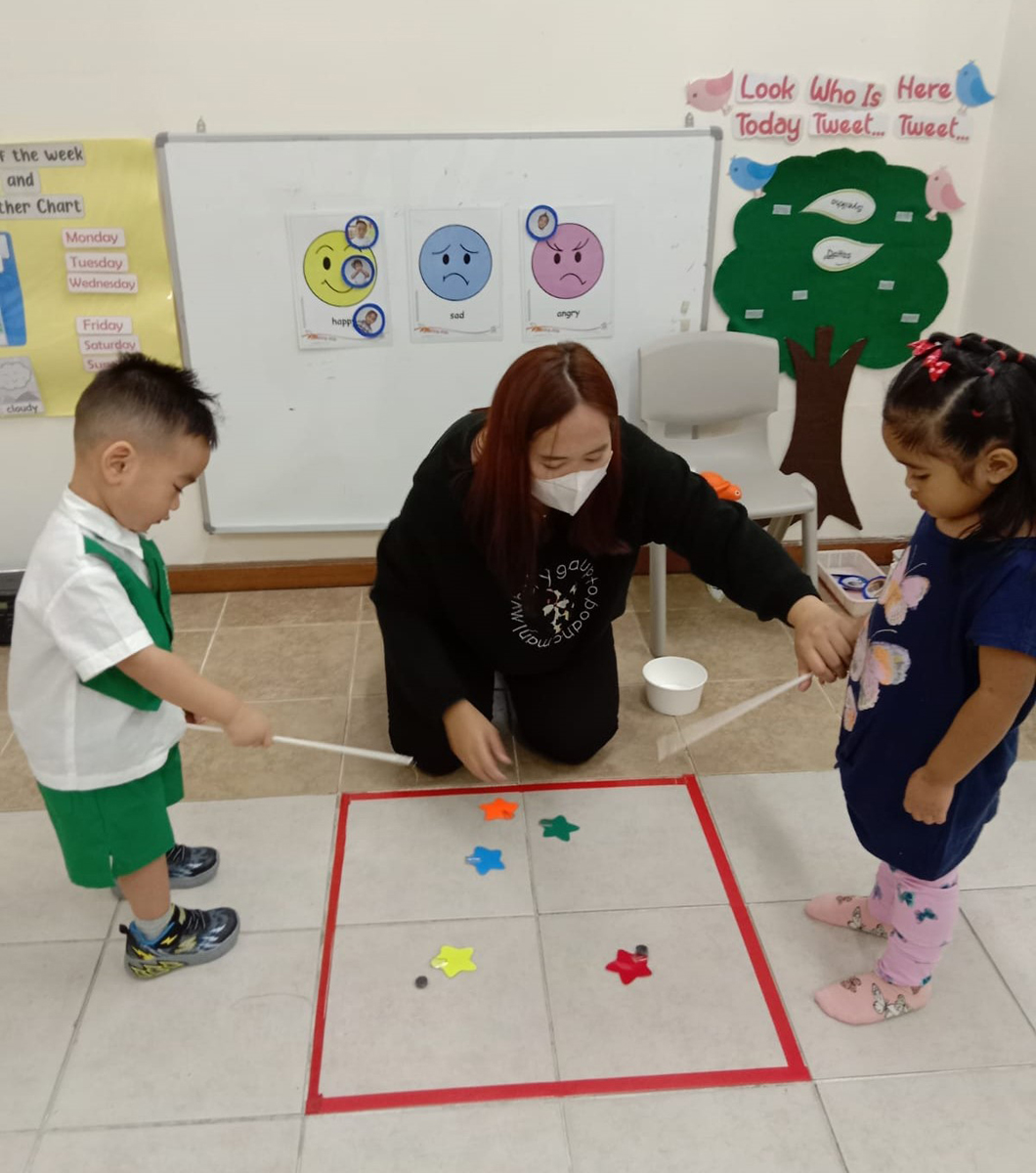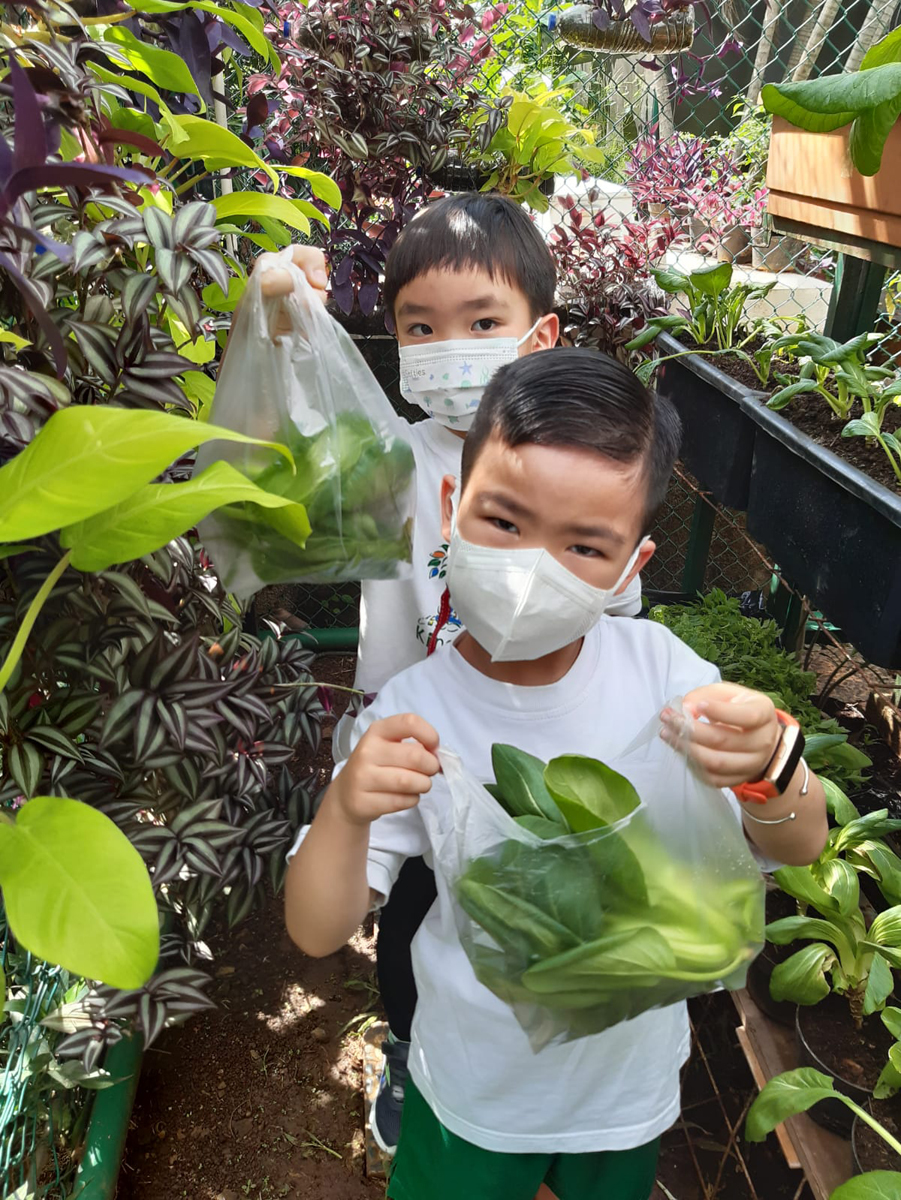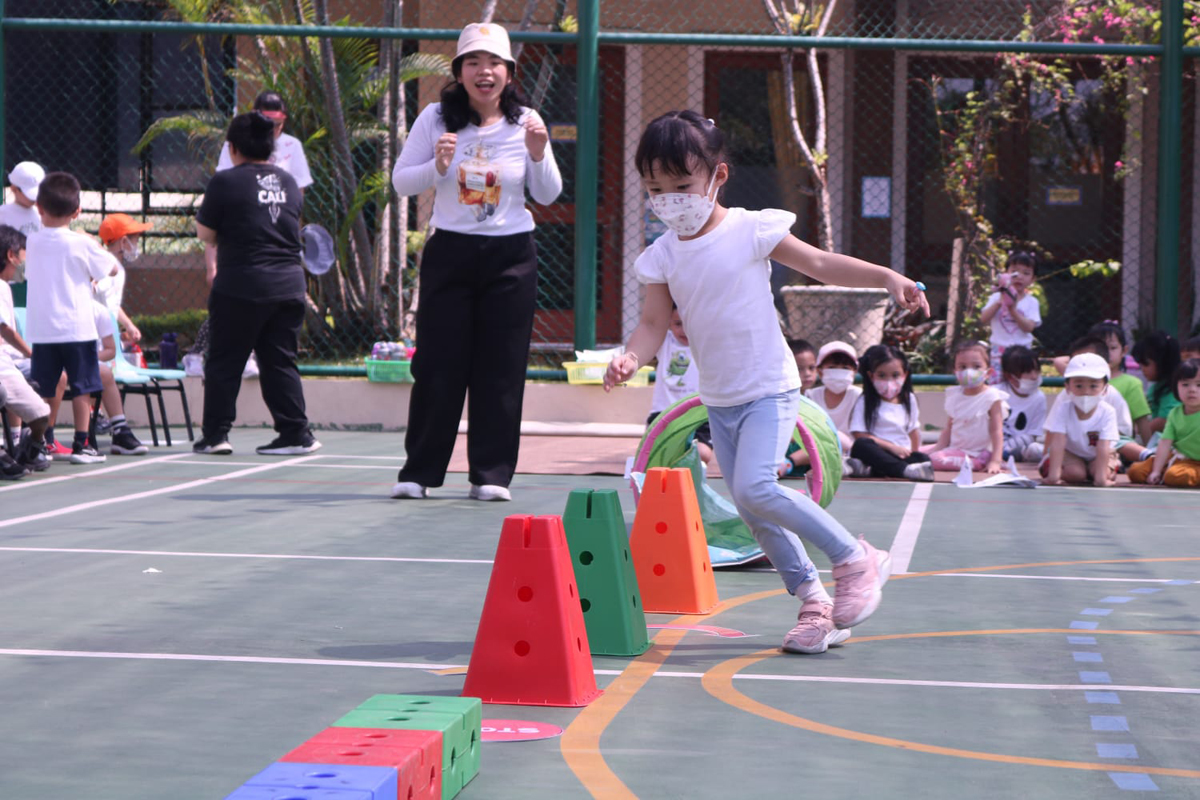Physical activities are not only essential to children’s physical development, but they are also equally crucial for the cognitive and emotional development of preschoolers.
Physical activities for children can come in many forms from exercises to creative games. At Kinderland we actively promote physical education and activities at our preschools to ensure the well-being and holistic development of our children. Here are four ways that Kinderland Jakarta encourages our children to work out and keep fit:
- Setting a Positive Example
Preschoolers learn by observing and imitating adults. It is important for teachers to set positive examples by being physically active themselves. Kinderland teachers actively participate in centre activities such as exercises and going for walks. Showing enthusiasm towards physical activities motivates our children to participate and embrace a healthy lifestyle. - Incorporating Movements into Classroom Learning
Another way to encourage children to move is by integrating physical activities into classroom learning experiences. Kinderland teachers regularly use movement-based games to teach concepts to children. Such creative activities make lessons more fun and interactive and often increases children’s engagement with the lesson topics and content.
Learning about colours through a movement-based game
- Outdoor Play
Outdoor play offers a wide range of physical activities and allows preschoolers to explore their surroundings. Besides enjoying running, jumping and climbing at outdoor playgrounds, Kinderland children also get to go on nature walks and interact with nature, such as collecting leaves or observing insects.
K2 students harvesting of vegetables outdoors
- Structured Physical Education Learning – KinderFit
Developed by physical education specialists to emphasize holistic wellness, the KinderFit programme is based on Rudolph Laban’s movement-based framework as well as celebrated American cardiovascular fitness programme Feelin’ Good, developed by Dr Charles T. Kuntzleman.
One of the cornerstones of Kinderland’s curriculum, KinderFit is a structured wellness programme that is organized around the themes involving the body and its interrelationship with space, time, effort and flow. It enables young children to look fit and feel great about themselves – includes fundamental movement activities, cardio-wellness programmes, lessons on healthy eating and nutrition, as well as customised meal plans.

Children practising KinderFit movement activity

